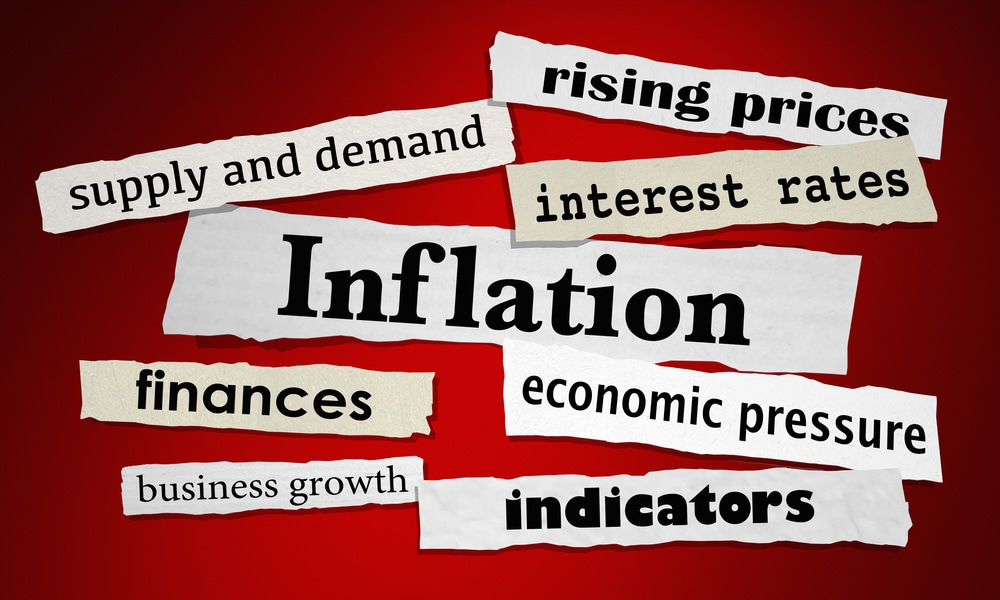Is $4 Million Enough Money To Retire When You’re 60?
How much income do you really need to retire by 60? Is 4 million dollars enough? Realistically, even 2 million dollars could be enough to retire. So if it’s that simple, why do you need to be here any longer, and why even discuss this topic anymore?
Well, as a registered investment adviser would tell you, while 2 million dollars or 4 million dollars can be enough in some hands, even in the retirement planning phase, some people can already tell that such a figure is simply not enough to retire comfortably.
Quite a number of factors affect this equation. What does your retirement income look like? The same question goes for your retirement savings. Financial advisors aim to ensure that you have the right amount to maintain your lifestyle once you cross that bridge.
One of the worst things that could happen is that you get to retirement age only to find out that you didn’t anticipate correctly. Therefore, today is all about understanding how you can comfortably retire by having enough money to do so. We also have a great article on how to save for retirement at 40. South Dakota is also a cheaper place to retire if an outdoor lifestyle takes your fancy.

The Retirement Income You Need
Some people would say that your pre-retirement income and spending can be used as your measure. In essence, your retirement spending is going to be akin to what you spend before you get to the full retirement age. Of course, this would need to be adjusted for inflation.
Unfortunately, that estimation is not on the money and your financial advisor can tell you that at the onset. Retirement accounts don’t need to replace 100% of pre-retirement income to ensure that their owners can live comfortably during this time.
First, the portion that you would be saving toward your retirement plan is no longer necessary since you’d fall under the umbrella of retirees at that point. Next, the regular spending associated with work such as the commute would no longer be a factor. Mortgage payments are likely going to be complete and a lack of dependents would eliminate the need for life insurance payments.
Of course, these circumstances can vary, which means you do need financial planners to assist you in determining the percentage of your income you’d need to have access to in retirement income to handle your living expenses and remain comfortable.
Retirement Expenses
This is another crucial area of retirement plans. How much income you need is heavily influenced by what your expense pool is going to look like during the retirement era. Of course, each personal situation is different, which means that the number of expenses planned for could be way over reality, hit the mark, or fall short.
Some expenses are most certainly going to reduce during retirement. However, there’s also a high probability that other expenses may appreciate. Health care is an incredibly common one and you do need the money to ensure you can access the facilities you need during that time.
New retirees often find that they spend highly initially, transition to a moderate spend for a long time, then end up spending quite a bit of money, most notably due to long-term medical expenses.
Pensions, Social Security Benefits, and More
Social security income is typically a part of the puzzle meaning your retirement savings don’t need to pull everything off on their own.
Hitting your savings goal is great, but having your social security benefits chip in is as beneficial as it is appreciated since it often makes a big difference in retirees having enough income to survive during retirement.
Of course, the monthly income that you can access from social security is not set in stone. Those who earn more money are going to have access to a lower income replacement percentage from the benefit.
If you want to find out what the figures look like in your particular situation, then you can have a look at your most recent social security statement.
Beyond this, you also want your calculations to consider other potential sources of guaranteed income where applicable, including the pensions that you’d be able to access from former jobs.
Again this is not the same amount for everyone, so it helps to calculate things based on your current situation to have a better idea of what things may look like for you. Check out this article on saving for retirement without a 401(k).
How Much Retirement Savings Will You Need?
This is one of the big determinants of your monthly income in retirement. Picking two million dollars out of the air without calculating is never a good idea. That’s why it’s called personal finance. It’s by no means an objective concept.
A retirement calculator is a big help as you can plan based on today’s dollars and even account for how different scenarios may affect your nest egg. The 4% rule, covered a bit later, is another concept that you can use to guide how much of your savings you can withdraw in the first and subsequent years.
Of course, there are some assumptions made for those who are using this approach that you probably want to avoid like the plague.
Financial Planning: Monthly Income, Need-based Budgeting, and More
The best way to assure the most optimal future results is to work on an investment plan before the time comes. Personal finance here is meant to ensure that you have the long-term in mind.
A budget typically starts off the retirement planning as it helps you to understand what your specific needs may look like given your standard of living, needs, life expectancy, etc. Again, you see why the same amount of money isn’t enough to retire for everyone.
Tracking the money you currently spend on expenses for a period helps you understand your needs. Inflation certainly affects what the dollar value is going to be in the future, but the impact is not so great that you can’t have at least an idea of what you’re going to be dealing with in living needs, hobbies, etc.
Adjusting Your Lifestyle
Some of this happens naturally while the rest is a conscious decision. The priorities you have during your able work years are not necessarily going to be the same ones you have when you retire. Naturally, as you age, what matters changes.
Your past is enough to tell you that. When you were a child, getting good grades, not missing play time, and getting new toys were probably the only things on your agenda.
As you got older, perhaps assets, investment management, and meaningful relationships became more essential. The process doesn’t stop there as your focus is likely to continue to shift as you approach and transition into your retirement years.
Past performance would indicate that this translates to retirees downsizing where their lifestyles are concerned. You can do the same where necessary.
All it takes is evaluating carefully not only what matters, but also how you can repurpose areas of your income to serve you better after you retire.
Passive Income Development
There’s more than one way to ensure you have guaranteed income after you’ve retired. Having passive sources is a well-known strategy because it means you can depend on more than your social security benefits or your savings to sustain you.
The active side of things spans anything you had an active engagement in, including business activities or a trade. On the passive end of the spectrum, there are activities that don’t meet the standard of material participation and the rental category. The latter doesn’t apply if you happen to be in the world of real estate.
As most investors would know, there are a host of passive options out there but you must consider their potential and your risk profile before you decide on any of them. High-yield savings accounts provide a low-risk option, for example, while you’d be dealing with more risk by going for a high-risk dividend stock.
Contrary to popular belief, the stock market is not the only option out there. Apart from speaking to a professional, check out a blog post (our guide to retirement if you’re self employed), do some research, and engage yourself in whatever is necessary to learn more about how you can passively bolster your income enough to retire.
Debt Reduction
Unfortunately, debt continues to be a huge problem that households deal with. Unfortunately, its presence in your life can seriously derail your ability to save money for your retirement. More even, reports would indicate that older citizens have seen an increase in debt.
One of the causes of this is when expenses unexpectedly appreciate during retirement years. To compensate, some people may take on extra sources of debt. Hasty decisions such as credit card applications can be very detrimental to what could’ve otherwise been a comfortable retirement for you.
Apart from that, they may make high-risk investment decisions when they’re older, which is never a good idea. What may be a better approach is to revise asset allocation.
Retirement Friendly Dwelling
Your income can also be affected by where you are when retirement comes around. This could sound odd, but it also happens to be very true. Think about what the real estate scene looks like across the country.
Some areas present a more expensive cost of living than others. For example, South Dakota, Tennessee, Texa, and Alaska have no state income tax for residents to worry about. Additionally, there is no significant retirement income tax deduction. Sales, estate, property, and inheritance taxation in these states present a positive outlook.
Beyond that, there’s the matter of your social security income. Some states tax it while others don’t, which means its contribution to your retirement income could be much greater or much less.
Going beyond geographical borders is also another option. Those who retire and live in places such as Malaysia and Portugal typically end up in more favorable situations than they would’ve otherwise since those locations can be cheap to live at.
Using the 4% Rule
Earlier there was a mention of the 4% and how those who retire can apply it effectively. This is one of several methods you can use to determine how much money you need to allocate to savings to ensure the retirement income you need.
Note that there are some implicit assumptions where this rule is concerned. First, there’s the fact that it works with a 30-year life expectancy for your retirement. Of course, if you fall within that bracket then you don’t have a problem.
However, some people live longer after they retire and they do need to ensure that their portfolios, medical costs, etc., increase with age.
The gist of the 4% rule is that you withdraw 4% of your retirement savings in the first year. You can do so across several payments or as a lump sum. Subsequent years would then see you adjust this percentage as necessary to accommodate your cost of living.
Calling in a Certified Financial Planner
Having a financial advisor to assist you with your retirement planning is one of the best decisions you could potentially ever make. While it’s always going to be difficult to predict exactly what things are going to look like when you retire, having someone who understands the financial market at a professional level can give you a pretty good service.
The planning is complemented by other services including investment risk calculation, which go a long way in helping to guide your financial decisions leading up to your retirement. Effectively, you can capitalize on the expertise to ensure your annual income nets you enough to retire comfortably.
A Diverse Investment Portfolio
If investment is going to form a part of your income generation plan for your retirement, then you don’t want to put your eggs in one basket. Investment advisors always advise their clients to ensure that they have a diverse portfolio and that advice could not be any more on the mark.
You always want to be putting your money in multiple asset classes. Doing so helps you to increase your flexibility while ensuring that you can tolerate losses better. If an investment does well, it has less of an impact if it represents a part of your portfolio instead of the whole thing.
Something that you want to learn and apply early on is that your retirement investment decisions need to be based on adjusting to the current market instead of predicting where it is headed.
Reassessment and Adjustments
Even those who appear to be able to retire comfortably often make the unfortunate mistake of not readjusting and reassessing as they should. You could have the best financial advisor in the world, real events can differ greatly from the projected ones.
You must consider and act on the fact that this can have implications on your savings and the extent to which your social security entitlement can help you pick up the slack.
There’s nothing wrong with saying that you want to have two million or four million dollars in your savings by the time you retire. However, whether you meet that goal or not can and should affect how you decide to proceed thereafter.
For example, it could mean that you need to keep working longer than you had anticipated. On the flip side, you could have more money than expected when you retire.
You also want to continue to do reassessments even after you begin to execute your retirement plan. Maybe less of an investment in the stock market is a good idea because of the negative implications of the stock market. Alternatively, maybe your standard of living needs an adjustment based on real-world events.
Retirement Considerations
This may seem like a weird heading since all the information above has been based on considerations where your retirement plan is concerned. While you are correct, you can consider this section as a few tidbits you want to bear in the back of your mind as you try to put money away for retirement.
Inflation
As you know, the purchasing power of money decreases over time. It’s why your salary from half a decade ago can’t do what it used to in the current landscape. Like you are required to adjust when you’re still able to work, you must do the same after you retire.
So, even if you had a spending plan coming into things, you may realize that the actual inflation rates thwart what would’ve been. You have two options and you’re advised to incorporate both.
The first is to account for inflation during your planning, while the second is to make adjustments to your lifestyle for greater cost-effectiveness.

The shift from Independent Living
Unfortunately, senior citizens have a 70% chance of ending up residing in an assisted living facility. Beyond that, there’s a high likelihood that you’re going to need greater health care as you continue to get older.
On both fronts, it’s recommended that you look into buying long-term insurance to offset the potential impact on you.
Preparing for Death
You hear it said that death and taxes are sure all the time. After retirement, your likelihood of dying continues to increase as you age. You can use your money to prepare for your death and make it that much easier on the loved ones that you leave behind.
Buying life insurance is one way of going about this since it can be used to help with your funeral expenses while creating or at least starting a trend of generational wealth in your family.
At the very least, purchasing burial insurance is a good idea.
Conclusion
There’s no doubt that 4 million dollars seems like a lot of money before you retire. It seems like so much that you are probably certain that it should be enough to cover you once you’re not working anymore.
While this can be the case, it could also not be enough. The best way to ensure the best possible outcome is to loop in a financial planner and continue to make adjustments where necessary based on how world events unfold.
Frequently Asked Questions
How Much Is the Average Annual Income Post-retirement?
The average retirement income annually is $84,153 for those who are 65 to 74 years old and $58,684 for those who are 75 years and older.
Is 60 Years Old Considered Early for Retirement?
The answer to this question depends on how you view it. From a human standpoint, it would be a no. 60 years old is a perfectly acceptable retirement age.
However, social security doesn’t agree as the benefits that would complement your savings are yet to kick in at that age. Also see our article on the best senior dating sites for seniors over 60.
How Much Should You Pay into Your Pension?
According to financial experts, you want your pension pot to be equivalent to about 10 times your average working-life salary. Allocating 12.5% of your earnings to your pension is recommended.
Is It Advisable to Retire at the End of a Financial Year?
If you should choose to retire at the end of a financial year, it means there’s no salary to add on since a new tax year is beginning. Therefore, your pension income is taxed at the 20% basic rate.
Social Sharing
The owners of this website may be paid to recommend Goldco. The content on this website, including any positive reviews of Goldco and other reviews, may not be neutral or independent.
You can view Peter's Author page here.




